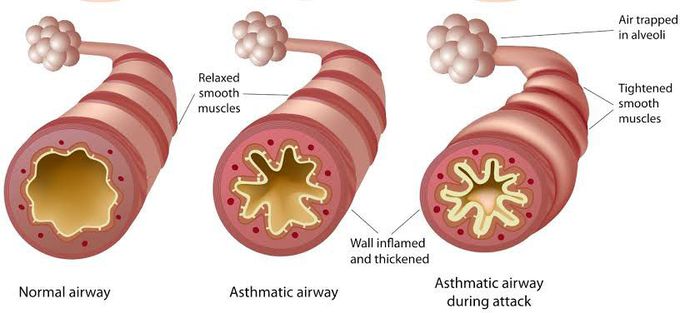


Common triggers of asthma?
You can have an asthma attack if you come in contact with substances that irritate you. Healthcare providers call these substances “triggers.” Knowing what triggers your asthma makes it easier to avoid asthma attacks. For some people, a trigger can bring on an attack right away. For other people, or at other times, an attack may start hours or days later. Triggers can be different for each person. But some common triggers include: Air pollution: Many things outside can cause an asthma attack. Air pollution includes factory emissions, car exhaust, wildfire smoke and more. Dust mites: You can’t see these bugs, but they are in our homes. If you have a dust mite allergy, this can cause an asthma attack. Exercise: For some people, exercising can cause an attack. Mold: Damp places can spawn mold, which can cause problems if you have asthma. You don’t even have to be allergic to mold to have an attack. Pests: Cockroaches, mice and other household pests can cause asthma attacks. Pets: Your pets can cause asthma attacks. If you’re allergic to pet dander (dried skin flakes), breathing in the dander can irritate your airways. Tobacco smoke: If you or someone in your home smokes, you have a higher risk of developing asthma. You should never smoke in enclosed places like the car or home, and the best solution is to quit smoking. Your provider can help. Strong chemicals or smells. These things can trigger attacks in some people. Certain occupational exposures. You can be exposed to many things at your job, including cleaning products, dust from flour or wood, or other chemicals. These can all be triggers if you have asthma.

